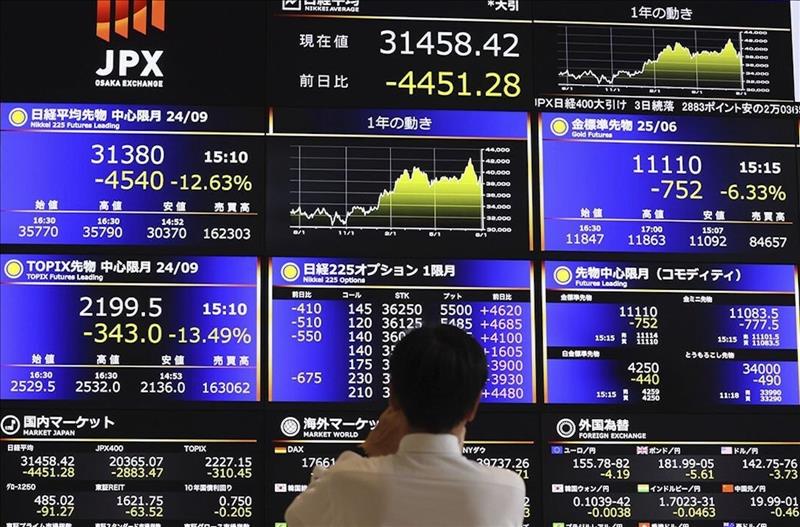
Nikkei's Black Monday 2.0 Triggers Contagion Talk
The search has turned frantic as the Nikkei 225 Stock Average leads a global sell-off in stocks. The Bank of Japan's July 31 rate hike was followed by a softer-than-expected US employment report. On Monday, the Nikkei plunged 4,451 points, more than Black Monday in 1987.
Arguably, no good corollary exists thanks to uncertainties surrounding Japan thanks to the“yen-carry trade.” Though the US dollar is by far the global reserve currency, borrowing cheaply in yen and deploying those funds in higher-yielding assets elsewhere became as crowded a trade as history ever saw.
This explains why when the yen rallies, things go sideways for everything from Wall Street stocks to British gilts to Brazilian options to Indian property to Chinese corporate debt. Things tend to zig fast when the globe's top creditor nation zags.
“The buzz is all about the contagion effect of this aggressive bear onslaught, underscored by fears of a hard landing in the US and a severe meltdown in Tokyo's markets , which now appear to be self-perpetuating,” says Stephen Innes, managing partner of SPI Asset Management.
In a note to clients, Kinsale Trading analysts write that“the yen carry trade has been used to fund bull markets in virtually every asset over the years,” ... and if it is“starting to reverse, it has negative implications for stocks and other risk assets.”
Rarely is that truer than now as Black Monday 2.0 slams Asia, sending the Chinese yuan higher, too.
Turmoil in Japan's markets boiled over Monday as the yen extended its rebound against the dollar to about 13% from July's low and stocks tumbled into a bear market . Japanese government bonds slid gyrated the most in more than two decades.
“Many traders who were borrowing yen at low interest rates, converted them to US dollars and used this to buy US stocks,” notes Daniela Sabin Hathorn, senior market analyst at Capital.“But now, with higher rates in Japan, not only must they pay higher interest for the yen they borrowed, they are now facing forex losses as well.”
Japan has spent 25 years becoming the monetary liquidity version of the global financial system's background music. That is now a titanically large risk playing out in real-time and in ways traders aren't all that equipped to navigate.
Part of the problem is complacency. Over the last two decades, investors have survived myriad moments of high yen-carry trade tension. Generally, though, the related hijinks in asset markets never quite matched fears about giant reckonings.

Legal Disclaimer:
MENAFN provides the
information “as is” without warranty of any kind. We do not accept
any responsibility or liability for the accuracy, content, images,
videos, licenses, completeness, legality, or reliability of the information
contained in this article. If you have any complaints or copyright
issues related to this article, kindly contact the provider above.




















Comments
No comment